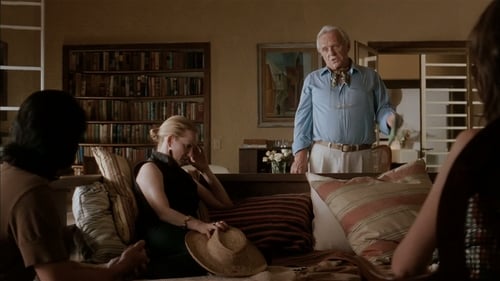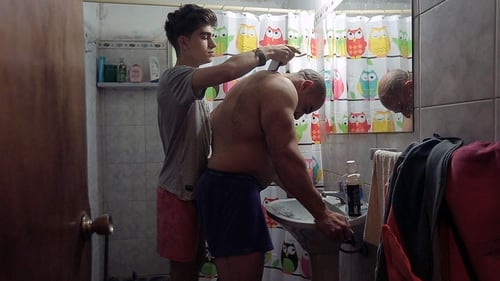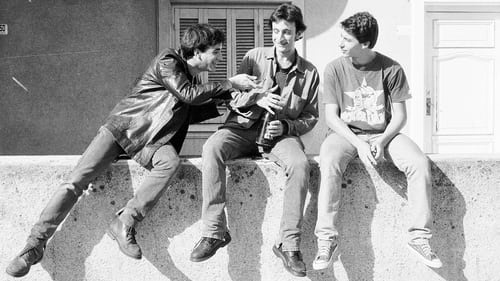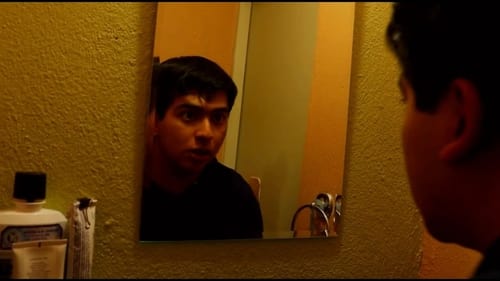Ruidos
Жанр : триллер
Время выполнения : 0М
Директор : Jonathan Westerley
Краткое содержание

В центре повествования — путешествие американского студента, отправившегося за вдохновением в Уругвай. Он хочет написать биографию известного латиноамериканского поэта, а для этого — вынужден общаться с родственниками умершего уже гения.

Sound progression of two opposite landscapes.

A documentary on the life of Uruguayan politician and former guerrilla fighter José Mujica.

Andres and Elias get together one evening for their last summer joint. On his way home, Elias finds a hidden case containing 5 different types of drugs. The next morning, Elias calls Andres to catch up on his discovery. He tells him he wants to gather round with some friends to perform an experiment: each should take a different drug and see what happens. The experiment takes a sudden turn when Andres girlfriend calls him to say her grandma has died.

In 1998, a small South American village is in a flurry over the Pope's upcoming visit for the business opportunities that it will provide. While most of the residents plan to sell food at the parade, a smuggler family man decides to build a pay toilet.

Богатая голливудская студия купила в Уругвае для своего очередного фильма старинный локомотив XIX века. Но это известие встречают в штыки старички - члены ветеранской Ассоциации железнодорожников. Они решают бойкотировать сделку и не дать переправить поезд в США. Трое самых отчаянных пенсионеров и внук одного из них похищают локомотив и с лозунгом "История не продается" сбегают от новых владельцев и полиции по заброшенным узкоколейкам Уругвая. Естественно, по пути с ними случается масса приключений в духе самого настоящего вестерна. Но главное - их поступок становится лучом надежды, символом сопротивления для многих и многих уругвайцев, которые встречаются им на пути.

Jacob Kaplan lives an ordinary life in Uruguay. Like many of his other Jewish friends, Jacob fled Europe for South America because of World War II. But now turning 76, he is grumpy and in need of adventure. An unexpected opportunity to achieve greatness comes in the form of a quiet, elderly German, who Mr Kaplan believes to be a runaway Nazi. Determined to capture this Nazi, as Eichmann was captured before him, Mr Kaplan surprises everyone when he takes up this challenge.

Two young people learn about love as politics turn their world upside down in this drama from director Ana Diez. After a long and successful career as a soccer player, Xavi retires from the game and moves to Spain, where one day to his surprise he happens upon Rosana, a friend from his childhood in Uruguay. As Xavi and Rosana catch up on what has happened to them over the past thirty years, they flash back to 1973, when young Xavi and his father Manuel, a shoemaker, lived down the street from Rosana.


Ten years after winning a world title in bodybuilding in Russia and becoming a star of said discipline in Mexico, Antonio Osta (43) leads a life of austerity in the Uruguayan rural town where he grew up. He resides there with his son Juanjo (17), a sensitive teenager who keeps him company and confronts him openly. Suffering from acute kidney disease which keeps him from competing professionally, Antonio is stuck in limbo, halfway between his glorious past and the impossibility of being who he once was. However, he is unwilling to give up his lifestyle, even if it kills him. In an attempt to reinvent himself, and seeking a better future for his son, Antonio plans a comeback to the Mexico bodybuilding scene, where he may relive his glory days.

24 hours in the life of three street youths in Montevideo. Three teenage guys try to figure out what they're supposed to be doing with their lives in this drama from Uruguay that puts the emphasis on character over narrative.

A young criminal plans his first murder which will be carried out before an old man, his plan does not go as expected and takes a 180 degree turn.

Images of Argentinian companies and factories in the first light of day, seen from the inside of a car, while the director reads out documents in voiceover that reveals the collusion of the same concerns in the military dictatorship’s terror.

In 1983 a group of 154 children aged 3 and 17 years old traveled alone from Europe to Montevideo. They were children of political exiles from Uruguay, who were unable to come back to their own country; they sent their kids to know their relatives and home country. That human sign, charged with a political message, took part in children’s identity development. Nowadays, six of them still remember that day, when a crowd received them singing all together “your parents will come back”.

Armed based on photography, period films, archival materials and testimonies of survivors, family members and historians, the documentary accurately and exquisitely reconstructs the course of the “expropriating anarchists” in the Río de la Plata and specifically in Montevideo del First third of the 20th century.











